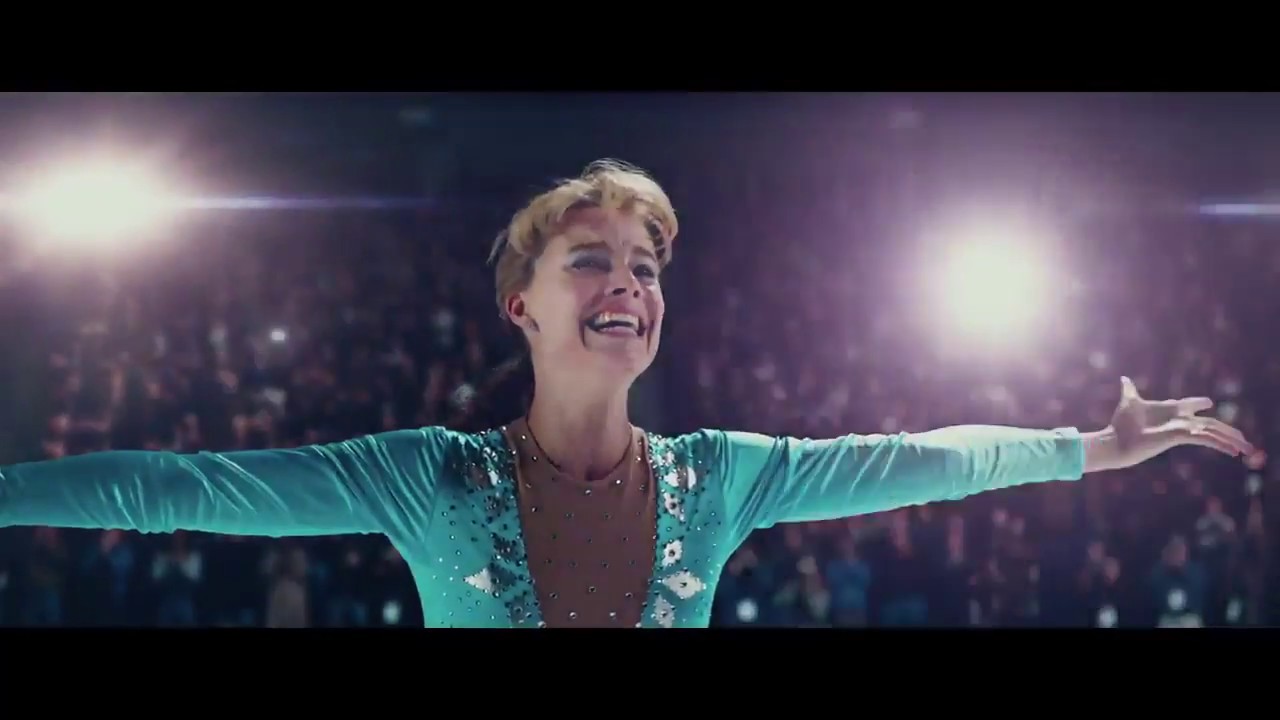“There is no such thing as truth,” Tonya Harding (Margot Robbie) tells us at one of the many caustic, slippery moments in I, Tonya. “Everyone has their own truth.” This could serve as the self-congratulatory motto for Craig Gillespie‘s well-acted film, a distinctly, and appropriately, Trumpian sentiment for what might be the first of a genre: the Fake News Biopic. Let’s hope it’s not.
The half-remembered details of 1994’s second-most salacious celebrity story provide the occasion for the film, though not its crux — the irresistible tale of figure-skating infighting, the attack on eventual Olympic medalist Nancy Kerrigan (barely on screen here), the involvement of Harding’s ex-husband Jeff Gillooly (Sebastian Stan) and doofus “bodyguard” (a Dorito-crumb-covered Paul Walter Hauser), the media frenzy are all starting points for a different project. What that project is, exactly, remains an open question.
If Gillespie and his team hope to generate empathy for Harding, or at least humanize her, I, Tonya has effective moments. The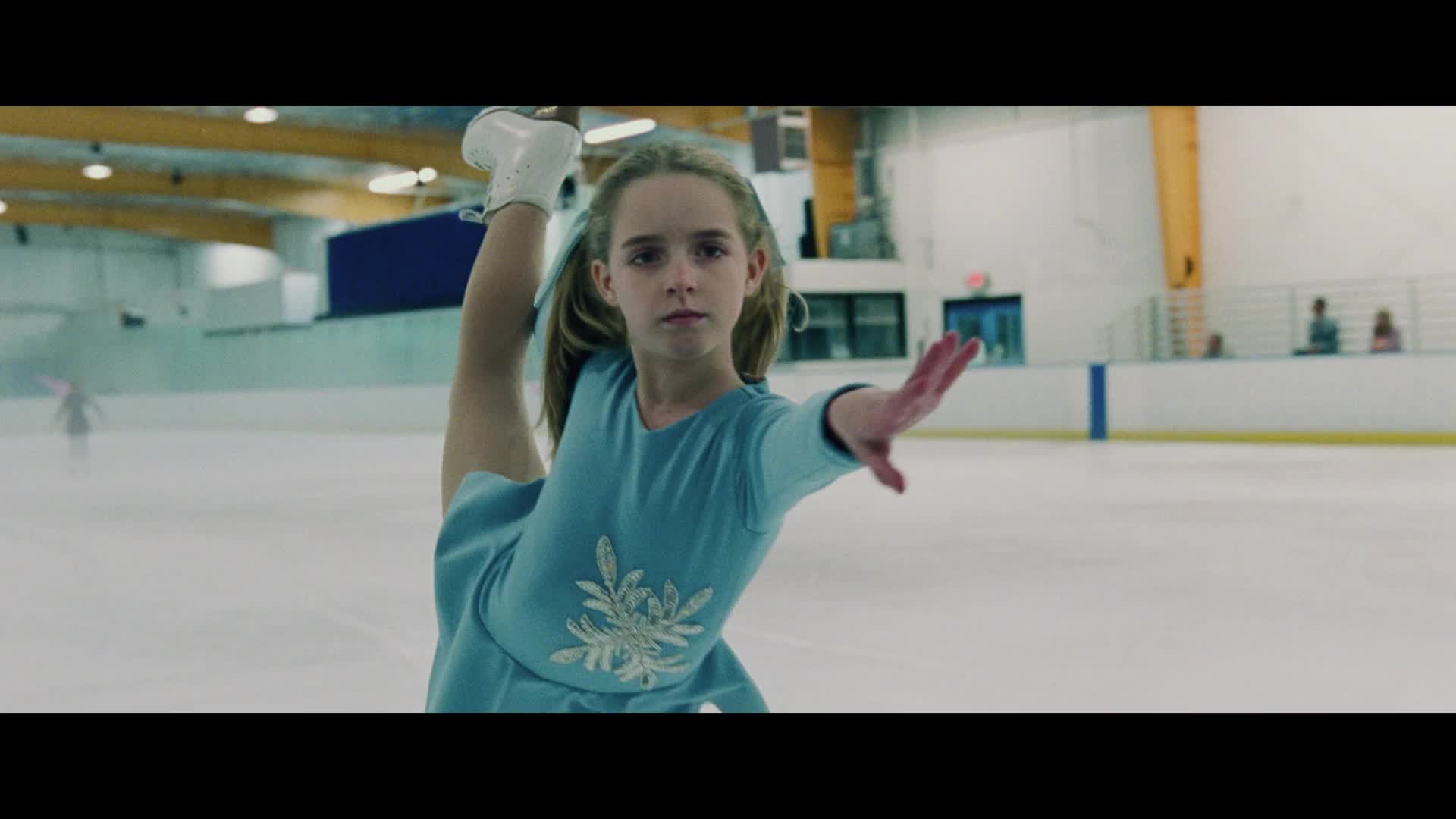 classism on display, as a rarefied world of hoity-toity ice princesses and stodgy judges react with nothing short of contempt for a roughneck upstart who can land jumps no one else can, helps. So do the biographical details — a monstrous mother (Allison Janney) who nearly single-handedly corrupted her talented daughter in the name of personal profit, an avalanche of later physical abuse at the hands of her husband. It’s a misery to consider.
classism on display, as a rarefied world of hoity-toity ice princesses and stodgy judges react with nothing short of contempt for a roughneck upstart who can land jumps no one else can, helps. So do the biographical details — a monstrous mother (Allison Janney) who nearly single-handedly corrupted her talented daughter in the name of personal profit, an avalanche of later physical abuse at the hands of her husband. It’s a misery to consider.
And it’s a misery played for laughs, introducing one of I, Tonya‘s distressing elements. Domestic violence is mined for jump scares, with their attendant anxious humor. Janney, a near-lock for supporting actress awards across the board, revels in comic grotesquerie, some sort of cross between chain-smoking, white trash sports-mom and Cruella De Vil.
It’s all of a piece with a larger aesthetic of collisions, some tonal, some physical, and some more epistemological, as that quote at the start implies. Intro text informs us that the I, Tonya is based on the “wildly contradictory” testimonies of the central players, and this seems true enough to Gillespie’s method, but it quite clearly means to take aim at us, too. It’s a spectacle dripping with reproach for its spectators.
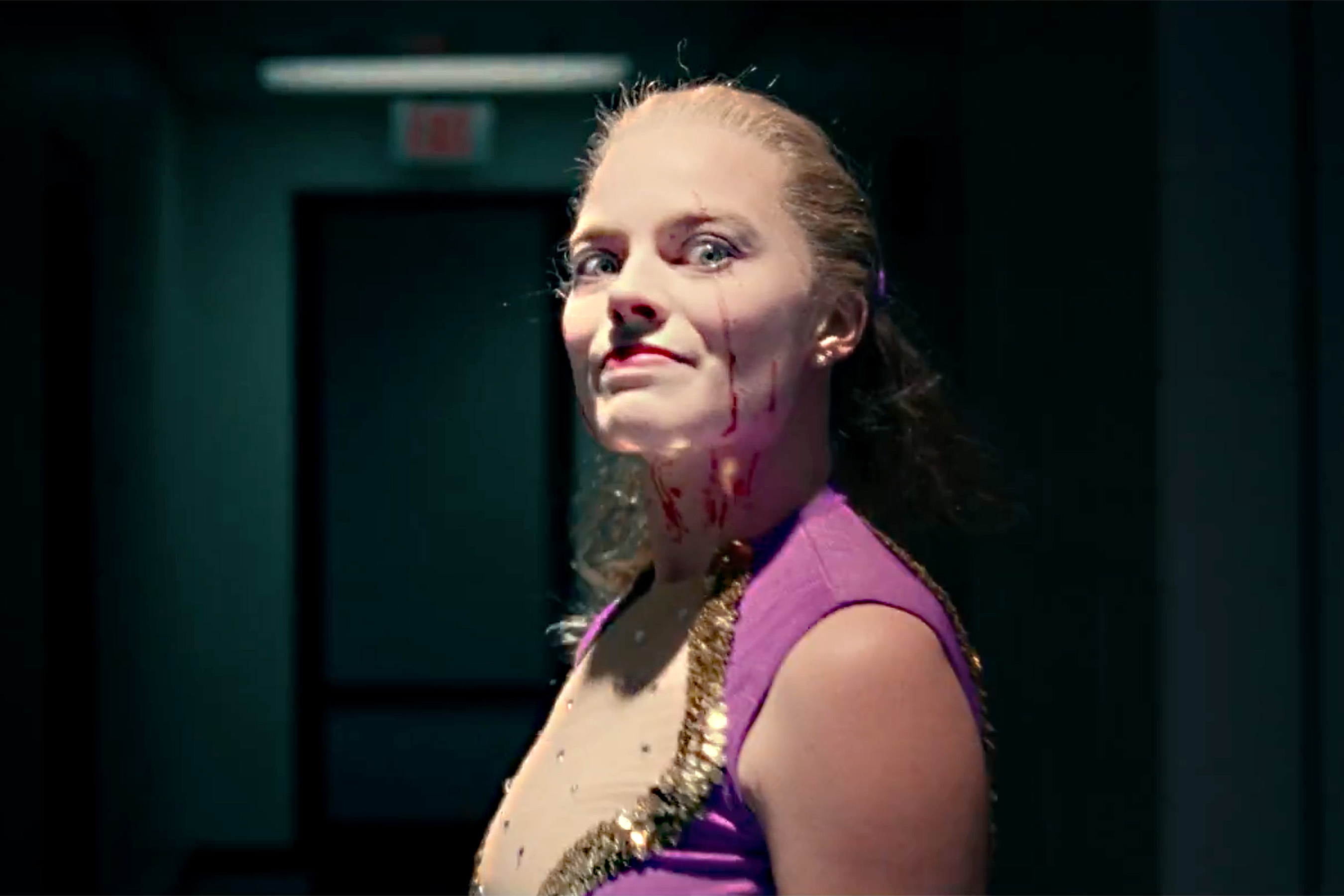 This tendency reaches its nadir in a fantasy sequence of Harding beating Kerrigan personally, horror-movie-style, brutally quick-cut, Tonya’s gleeful, bloody face. Introduced by a bemused Gillooly, it’s a mock execution for all the morons in the world (read: the audience) who imagined this is how it went down. But it’s also a re-enactment that fulfills that viewing desire. We are meant to laugh at the idiocy of the vision while simultaneously celebrating the cleverness of having it presented to us, having our bluff called by a film that knows: this is what you came here to see, isn’t it? Again and again, I, Tonya wants it both ways: to disown and pillory toxic celebrity while catering to its worst aspects, to mock its redneck players in the name of anti-classism, to deploy every trick it can muster to engineer snappy fun out of brutality and then chide us for indulging in the fantasies it created. The effect is striking, and not in a good way.
This tendency reaches its nadir in a fantasy sequence of Harding beating Kerrigan personally, horror-movie-style, brutally quick-cut, Tonya’s gleeful, bloody face. Introduced by a bemused Gillooly, it’s a mock execution for all the morons in the world (read: the audience) who imagined this is how it went down. But it’s also a re-enactment that fulfills that viewing desire. We are meant to laugh at the idiocy of the vision while simultaneously celebrating the cleverness of having it presented to us, having our bluff called by a film that knows: this is what you came here to see, isn’t it? Again and again, I, Tonya wants it both ways: to disown and pillory toxic celebrity while catering to its worst aspects, to mock its redneck players in the name of anti-classism, to deploy every trick it can muster to engineer snappy fun out of brutality and then chide us for indulging in the fantasies it created. The effect is striking, and not in a good way.
This is far from the only time I, Tonya tries to pull these tricks. The horror/action grammar of that meta-pastiche has all kinds of corollaries (Tarantino, Rashomon, and, most of all, The Big Short), but Gillespie’s favorite is a sort of low-rent Scorsese imitation, amping up the energy through Goodfellas-esque needledrops and sudden (in this case, almost exclusively domestic) violence.
The terror of that domestic violence itself is undercut by all the meta-tomfoolery. In my theater, there were gasps at sudden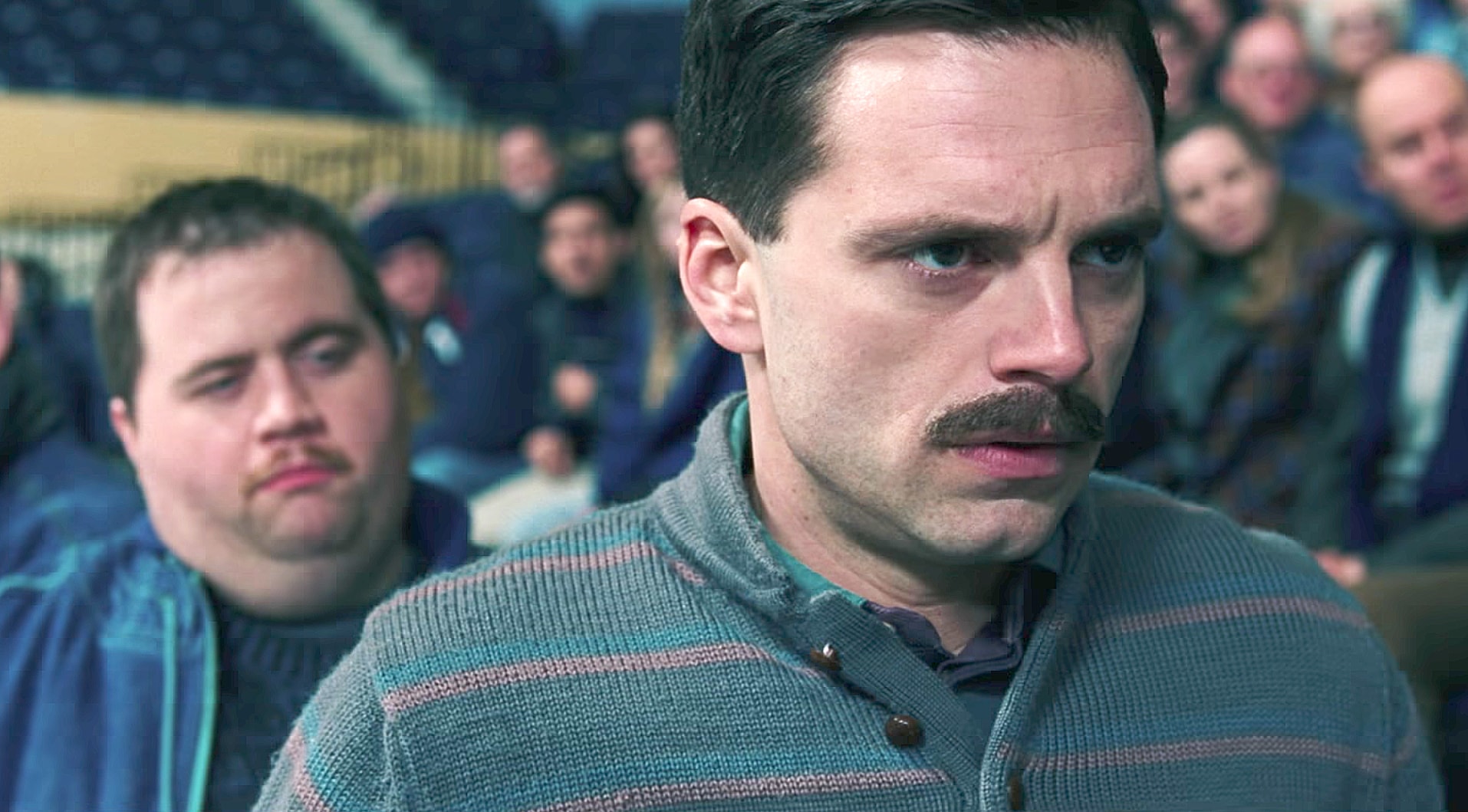 violence, but also some laughs … which the jump-scare has trained us to do. The film’s conceit seems to be that, by eliding tones and genres in these discordant ways, something important will be said about viewership as much about Tonya, or the 24 hour news cycle, or anything else. What’s more clear is how little I, Tonya actually cares about the violence it deploys in attempts to be cute.
violence, but also some laughs … which the jump-scare has trained us to do. The film’s conceit seems to be that, by eliding tones and genres in these discordant ways, something important will be said about viewership as much about Tonya, or the 24 hour news cycle, or anything else. What’s more clear is how little I, Tonya actually cares about the violence it deploys in attempts to be cute.
What I, Tonya misses is that something like Goodfellas also wants us to identify with the glamour, with the aspirational, to place us in the position of these protagonists, all reflecting these different viewpoints and experiences, before pulling out the rug. In I, Tonya, its entire nesting-doll structure precludes this. The “As far back as I can remember, I always wanted to be a gangster” sequence has a grace and edgy desire that Gillespie can’t pull off because the story won’t allow it. Instead, the story I, Tonya insists on telling is the story of us watching I, Tonya and not feeling terrific about it.
A late-in-the-film background shot of O.J. Simpson being arraigned on TV draws a muddled parallel – the film seems to be saying, “we are at the birth of the 24-hour news cycle, the cults of celebrity are collapsing.” So is Harding a victim of that culture? Is the point that she is “no OJ”? Most people probably would say, regardless of whether the individuals implicated are guilty of those crimes, that the crimes themselves are pretty different, so okay. Or, more likely, is the point that we, as viewers and consumers of tabloid scandal and a kind of voyeuristic American bloodlust, are the real perpetrators? In which case, are Harding and O.J. kind of the same? Or … what?
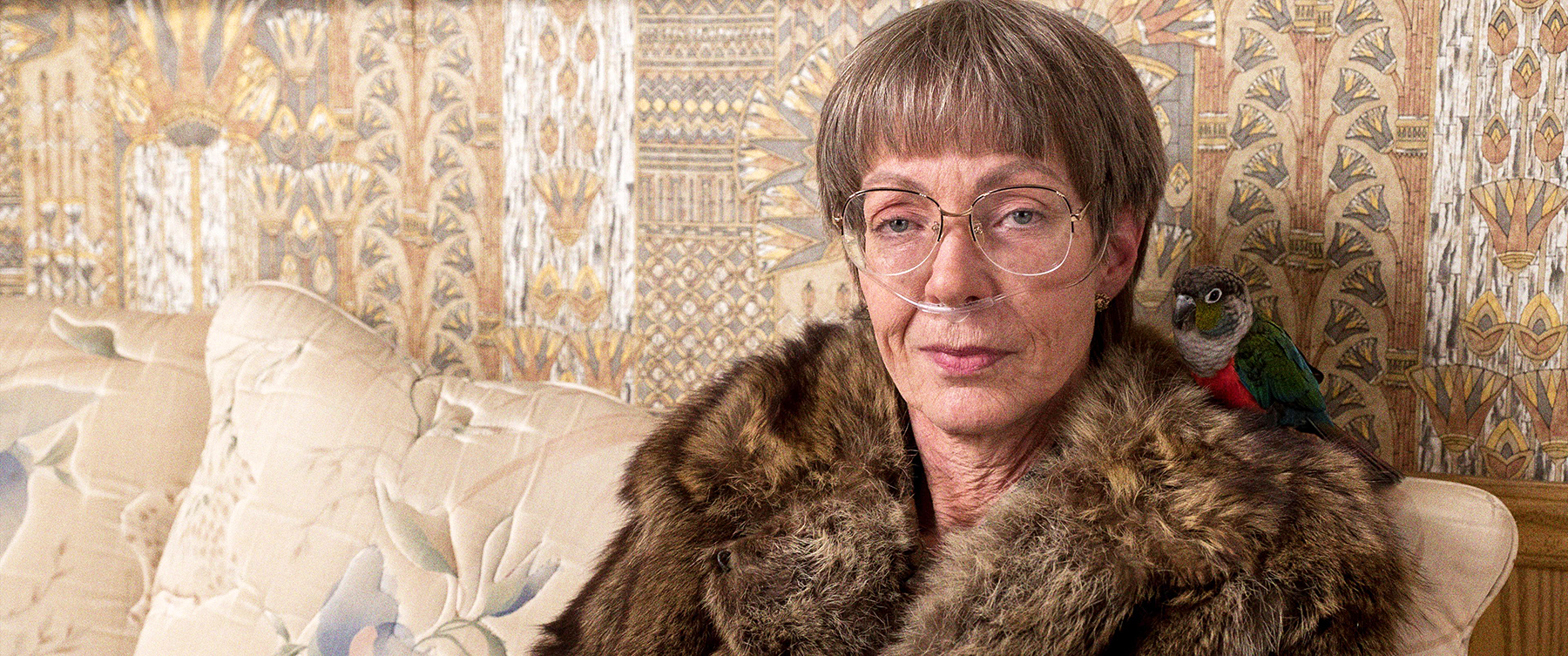 I, Tonya would, I am certain, laugh at any expectation of a “moral,” but is it too much to ask for some kind of rigor to the filmmaking, a desire to contextualize things in ways that resolve into something more than “Everyone has their own truth,” spit out with disdain for the players, the audience, even for the film itself? Reflexive self-laceration and gotcha finger-wagging, what Gillespie seems to imagine are the film’s contributions, are nothing new, certainly not in a world where Haneke already exists.
I, Tonya would, I am certain, laugh at any expectation of a “moral,” but is it too much to ask for some kind of rigor to the filmmaking, a desire to contextualize things in ways that resolve into something more than “Everyone has their own truth,” spit out with disdain for the players, the audience, even for the film itself? Reflexive self-laceration and gotcha finger-wagging, what Gillespie seems to imagine are the film’s contributions, are nothing new, certainly not in a world where Haneke already exists.
But the notion that claims to truth should be hurled back with spite onto the guests you’ve invited over might be. I, Tonya is as cynical as modern American cinema comes, and it will be, and has already been, celebrated for that reason. Maybe it’s the movie of our time. So much the worse for our time.

